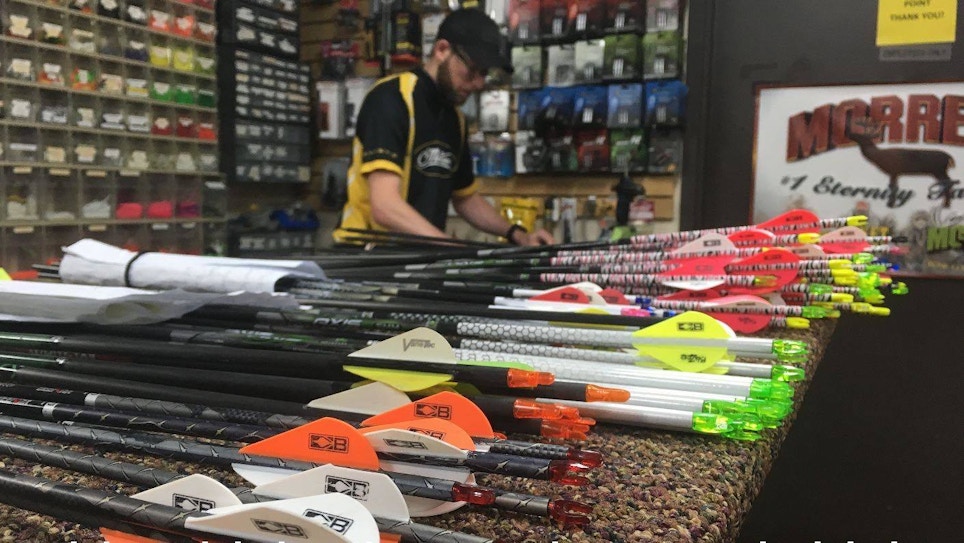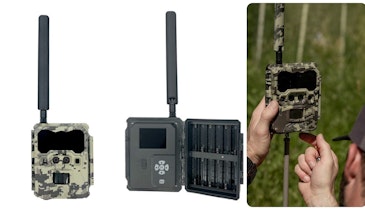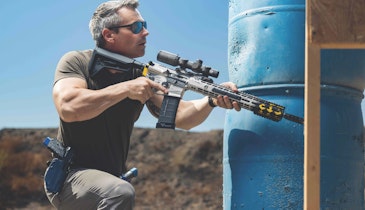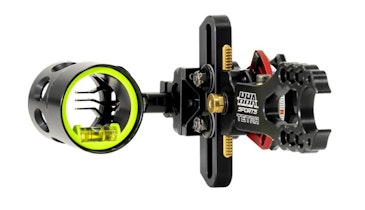Marty Stubstad
Archery Headquarters in Rochester, Minnesota
It’s imperative to display a good and positive attitude in your store. People aren’t coming in to buy a coffin. They’re coming in to buy a form of entertainment. Too often I hear stories of folks visiting an archery store where everyone is grumpy. Don’t be that way. Display an attitude and appearance that excites people about archery and bowhunting.
Having good products is also a big one, and you must be honest with your customers about products you sell. Don’t sell something just to sell something. A good salesman can sell just about anything, but you must believe in the product, otherwise your customers will return unhappy. That includes enjoying and using the product yourself.
As far as choosing products to believe in and stock, you can’t conclusively settle on any until you’ve tried them. Also, consider the brand. Does the company have a reputable history? I’ll relate it to both QAD and Mathews. They’ve always had high-quality products and customer service and always will.
It’s very important to stage your store and keep it clean. Keep the bathrooms clean and the floors mopped. Make your store presentable and attractive in every way. I’ve gotten lots of compliments over the years about how clean my store is. In fact, I’ve even been nicknamed “Mop Marty.” When you go into a big department store, you don’t see dirt and debris all over the floors, so why should an archery shop be any different?
Randy Grard
Fort Grard Guns & Archery in Weatherford, Texas
As a retailer, I’ve learned that I have to keep up with bow technology. We have to set up bows like it’s 2021. Our strategies and the tools we use have to reflect the current technological advancements. Rather than eyeball everything, we need to use lasers, levels and shooting machines. Only then can we guarantee our customers an optimal-performing compound bow.
To build on that, I’ve learned that you must be open-minded and never stop learning. You have to keep advancing your knowledge yearly as the new bows come out. Don’t grow stagnant and continue the mistake of applying old ways and methods to new bow technology. Tools are important. Having the proper tools for each individual job is crucial. It will affect the final outcome of the setup. In contrast, if your use inferior tools or ones not intended for the ways you’re using them, the setup will reflect the corners you’ve cut.
Inventory control is key. There are plenty of gimmicks — especially in the bow-accessory category — to weed through. I look at it this way: If it doesn’t improve the shooting experience, I call it burden weight on the bow.
Also, keeping inventory levels in check is so important. Plenty of businesses fail within the first two years because inventory eats them up. When you purchase inventory in January and have to pay for it by September, you’re in trouble if you don’t have the sales that you thought you would. When you’re still making payments on old inventory when it’s time to bring in new inventory, it’s a recipe for disaster.
You also have to be attentive to ways to save money. Try to get in on bulk buys and special pricing, when available.
Finally, have good relationships with your bow manufacturers. If you don’t, you’ll risk a bad relationship between the bow manufacturer and your customer. It makes selling the bow and standing behind it easier to do when you believe in the company. Don’t just look at the bow company as a supplier. Consider them a partner.
Kent Colgrove
Full Draw Archery in Omaha, Nebraska
You must run your store like a business from day one. When you open a new business that aligns with your passion, it’s easy to get distracted by the excitement and forget that business is about making a profit so that you can pay your bills and make a living. You must learn to set proper margins on product so that you can balance profitability and competitiveness in the marketplace. As you do this, consider the all-important factors: rent, freight, utilities, cost of goods, advertising, etc.
Also, industry relationships are important, so rely on your contacts. Manufacturers have industry experts either in house or working as manufacturer reps. These folks have a wealth of knowledge about products, programs and trends. This can be incredibly beneficial to a retailer. Seek out this expertise, but also consider it carefully and apply it to your own business situation individually and as you see fit.
Build good customer relationships, too. Be open, honest and approachable. Give your customers reasons to feel comfortable about doing business with you.
When we first opened our shop, folks came to us with problems we weren’t prepared to address. We quickly realized that we needed to expand our education. We became bowhunter-education instructors in our state. We became certified instructors with some of the national archery organizations. We learned proper archery form and shot execution from well-known, well-respected experts. We became involved with and knowledgeable about 4-H and NASP.
Become the local expert to your customers. Teach them archery to a high level, a national level and even a world-class level, but tailor the instruction to each individual student’s wants and needs.






